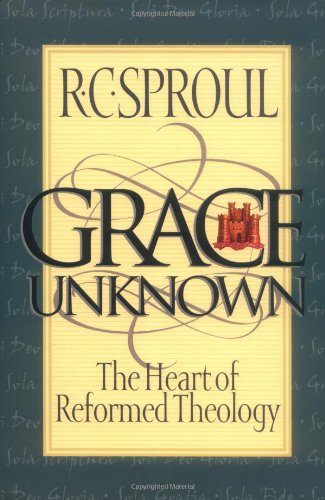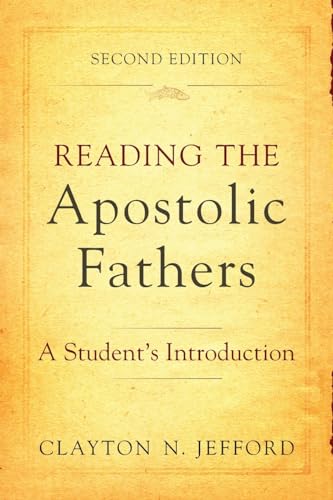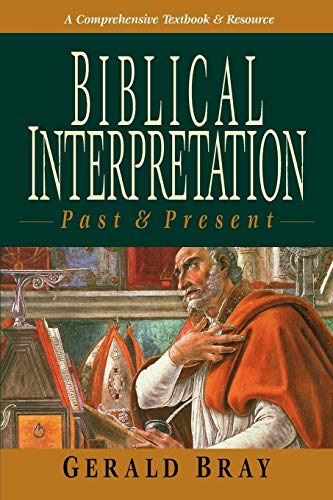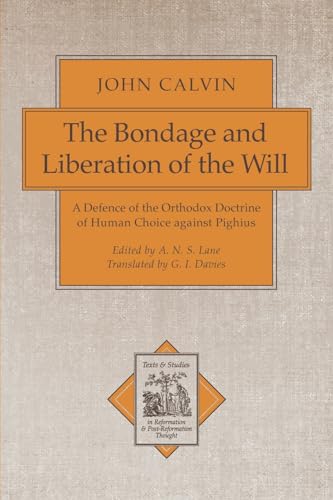Volume 23 - Issue 3
Two Books on Mission: Review Article
By Dewi HughesI will never forget a visit to Tuchin, a remote village in northern Colombia. We had travelled along a rough track for quite some time before we got there. The purpose of the visit was to meet a group of Christians to discuss a proposal for assisting the poor in their village. Since the chair of the local committee was the headmaster of the village school we met in the school. It consisted of two long thatched roofs, a small brick building for the head’s office and another for storing food and kitchen equipment. The classrooms under the thatch had no walls and the floor was the earth. Both the conditions and the equipment were rudimentary to say the least. Having enjoyed an excellent meal of local produce and spent some time discussing plans we took a walk through the village to meet some of the poor for whom the local Christian committee were hoping to acquire some land so that they could improve their standard of living. There were no made up roads in the village and precious little evidence of services such as sewerage, water or power. The houses of the poor that we visited were little more than shacks. We met one family with eleven children, who were all suffering from TB, living in conditions of desperate deprivation.
At one point in the very hot and sticky afternoon, with the sweat running freely down the inside of my trousers, the Westerners in the party went in search of a drink. We were directed to the local store which was a solid looking building compared to the houses we had been visiting. There were precious few goods for sale but we were able to buy bottles of dark brown liquid to quench our raging thirst. The inscription on the bottles was very familiar—Coca-Cola!
That experience has been deeply etched on my memory as a very vivid illustration of the reality of the world in which we are called upon as Christians to love and serve God and our neighbour. The presence of Coca-Cola in the remote Colombian village is symbolic of the fact that the Western ‘world’ and its values is inexorably penetrating into every corner of the earth. Coca-Cola may have a nice taste but it has no nutritional value at all. Dentists, in particular, see it as a positively harmful substance. So why is it available in a remote village full of very poor people struggling to find an adequate supply of food and water to keep body and soul together? There is no simple answer to this question. A part of the answer is that we have been gullible enough in the West to be persuaded that we should consume many things that may have a nice taste but are utterly useless or positively harmful. Another part of the answer is the fact that the commercial interests that have succeeded in persuading us in the West to consume their useless products are greedy for greater profits, so they look for every opportunity to expand their markets. Since the Western controlled media has created the impression that the West is awash with milk and honey, a presumption is created that anything Western must be good. So if Western people drink Coca-Cola, it must be a good thing. The result is that money which could have been spent on something wholesome is spent on something useless in order to make Western executives and shareholders richer.
Where the villagers I visited were concerned, the coming of Coca-Cola is but a more recent chapter in a long history of exploitation by Europeans. They belong to the remnants of the people that were conquered by the Spaniards in the sixteenth century. Being typical of conquered peoples, they belong to the lowest strata of society and in the case of these particular villagers they have even lost their language and much of their history. Their conquerors did bring a form of Christianity which they imposed upon them, but because this method of conversion contradicts the good news of Jesus Christ, it is not surprising that it failed to ennoble the indigenous peoples of Colombia.
The presence of Coca-Cola in Tuchin symbolises the continuing ability of the West to impose its values on people everywhere even after the end of the colonial age. It is extremely depressing when travelling in the Two Thirds World to see evidence of the superficial, hedonistic and materialistic values of the West seeping in everywhere. Even so, that is not to say that everything Western is bad. My presence in the village with a delegation from Tearfund UK to share in a local evangelical Christian initiative to help the poor witnesses to another type of influence. This influence is challenging many aspects of the local culture both Catholic and traditional but there can be no doubt that it is also raising many from the dust.
My experience in Colombia sets the scene for the major themes that are discussed in the two books, published in quick succession, by Vinoth Ramachandra that are under review in this article—an analysis of Western idolatries, which is the main theme of Gods that Fail, and a defence of the continuing validity of the traditional evangelical view of the gospel of Jesus Christ, which is the main theme of The Recovery of Mission.
The most serious challenge to the view that people everywhere need to believe in Jesus Christ to be saved eternally comes from pluralists within various Christian traditions. Ramachandra begins The Recovery of Mission, therefore, with three chapters analysing the work of three pluralists who contributed to The Myth of Christian Uniqueness edited by John Hick and Paul Knitter—Stanley Samartha, an Indian Anglican, Aloysius Pieris, a Sri Lankan Roman Catholic monk and Raimundo Panikkar, the son of a Roman Catholic Spanish mother and a Hindu father. The analysis and critique of these three pluralists makes up Part 1 of the volume. Part 2 consists of two chapters headed ‘Interweavings’ and ‘Engaging Modernity’ and places pluralism in its wider context in the development of European thought since the Enlightenment. ‘Interweavings’ highlights the tension between the fact that pluralism is a logical development of Western European thought since Kant and the anti-Western stance of all three pluralists examined in Part 1. In ‘Engaging Modernity’ Ramachandra examines Lesslie Newbigin’s analysis of modernity.
Part 3 focuses on the historical person of Jesus Christ and his impact upon his followers past and present. Chapter 6, entitled ‘The Scandal of Jesus’, deals with who Jesus understood himself to be and the meaning of his resurrection. ‘A Gospel for the World’ (chapter 7) deals with a fundamental problem for pluralists, viz, how can the historical particularity of the incarnation be a message of hope to all humanity’. In this context the traditional Christian idea of ‘incarnation’ is compared with the Hindu idea of avatar and the author goes on an interesting, if not entirely helpful, detour into the history of the way the Early Church dealt with Gnosticism. The final chapter, entitled ‘Gospel Praxis’, provides a fitting conclusion to the book with its fine portrayal of the type of community that Jesus has created historically and still creates even today. Each chapter is followed by notes and there is a good bibliography at the end of the book but, regrettably, there is no index.
Gods that Fail, subtitled ‘Modern Idolatry and Christian Mission’, begins by reworking and expanding some of the material already covered in chapters 4 and 5 of The Recovery of Mission. The first chapter, ‘Introduction: Modernity and Idols’, describes those elements out of which modernity and its child, post-modernity, have been formed. From this platform Vinoth Ramachandra sets out to examine modern forms of idolatry with the intention of challenging Christians to look honestly into their own hearts as well as to reach out with the message of Jesus into our modern world. Chapter 2, entitled ‘Religion and Idols’, shows that there was some justice in the critique of religion found in Marx and Freud. What they were attacking was not the God of the Bible but idols created by post-Enlightemnent philosophers and theologians. They, in turn, created new idols. Chapter 3 takes us back to the God of the Bible and particularly to the account of the creation in Genesis. The striking contrast between the Genesis account and other myths of origins is highlighted and the unjustified attack of some environmentalists on the biblical view is rebutted.
The reality of meaningless suffering in the world seems to clash with the doctrine of creation which emphasises God’s sovereignty. Many faced with such circumstances conclude that the God of the Bible is a failure. In chapter 4 Ramachandra turns to the ancient book of Job to discuss this problem. Chapter 5 then looks at the way idols are formed. The three idols he concentrates on are money (mammon), nationalism and science. Together these idols have spawned the ideology of development which is becoming more and more dominant all over the world. The Genesis stories of Noah and the Tower of Babel help us to understand and combat these idols and their ideologies.
Since the author believes that it is in the domain of science that we find the most influential of these three idols, the two following chapters (6 and 7) focus on science in particular. Chapter 6 shows how science is used to foster the worship of money and nationalism in the form of violence. However, at present, science as idol is destroying itself and being reduced to the same status as astrology or witchcraft in the process. Ramachandra, as a qualified scientist, responds to this challenge by defending science from subjectivism and relativism in the latter part of chapter 6 and then going on, in chapter 7, to expound what he believes to be a sound scientific method based on the ideas of Michael Polanyi (1891–1976). The volume concludes with a chapter entitled ‘The Cross and Idols’ which focuses on how devotion to Jesus Christ can enable us to withstand the powerful influence of the great idols of our times. There is no bibliography attached to this volume but there is an index of names.
Ramachandra is an Asian thinker and Christian leader actively involved in evangelism and in building Christian community; he is the regional secretary for South Asia of the International Fellowship of Evangelical Students (IFES). He has produced two very valuable and challenging books. Like every author, he builds on the work of others and, in particular, the work of Lesslie Newbigin. The great virtue of the books is that they address issues which are of central concern to the church at the moment and that they do so from a global Christian perspective. Panikkar is probably right in his claim that the discovery of the Eastern religious traditions in the last hundred years or so is as significant for the church in our time as was the discovery of Classical thought at the time of the Renaissance. In Ramachandra we have a rare theologian who understands both the Eastern and Western intellectual traditions but who has also a strong grasp on the essentials of the Christian faith. Without attempting to be exhaustive I have found his treatment of the following themes particularly helpful and stimulating:
- Pluralism. His analysis and critique of Samartha. Pieris and Panikkar taken together forms one of the best assessments of pluralism from an evangelical perspective currently in print. Some of the old problems with pluralism are highlighted, such as the bias towards an impersonal view of Ultimate Reality (ROM 13–14) or its fundamental intolerance despite its claim to the contrary (ROM 33). Then there are new arguments—to the reviewer at least. The ethical dimension is now central in the pluralist position. What pluralists claim is that they are driven by the desire to build a world community of peace and hope. To this end they focus on the best in terms of moral behaviour in the world religions and argue that if religious adherents of goodwill in all the world’s religious traditions could come together, they would be a great power in helping to bring about a harmonious world community and thus avoid the environmental or nuclear destruction of the earth. Since pluralists are already committed to an impersonal view of Ultimate Reality, which is more characteristic of the Eastern religious traditions, it is fair to ask whether those traditions have influenced their communities in the direction of a just social order. Ramachandra is right in claiming that there is precious little evidence of this having happened (ROM 15, 56, 67). To the contrary, societies that have been dominated by religions with an impersonal view of Ultimate Reality have been marked by their severe stratification of society into different types of human beings, the Indian class/caste system being the classical example. In the case of Buddhist/Hindu Sri Lanka, Ramachandra says that talk about poverty alleviation is welcomed but any attempt to undermine the class divisions of society which perpetuate poverty is strongly resisted. Therefore, it is right to question whether commitment to an impersonal view of ultimate reality can ever be an adequate foundation for working for peace and harmony in the world.
Every movement has its ‘saints’ and pluralism is no exception. Gandhi is unquestionably one of them. While not denying his greatness, Ramachandra is right in drawing attention to the fact that towards the end of his life he used to insist that his two female assistants slept with him naked in order to prove his powers of self-control. We may indeed marvel at his self-possession but Ramachandra asks about the status and feelings of the two young women who were used to prove it. For all his greatness Gandhi, through this action, was perpetuating the Hindu belief that women have a very inferior status in human community. Christianity, as a historical phenomenon, does not have a proud history in its treatment of women but theoretically, at least, it has a much better claim to a just view of women than does the Hindu tradition.
- History. Ramachandra is correct in focusing on the centrality of history in the debate with the pluralists. In order to sustain their position pluralists must reduce the significance of Jesus Christ to an idea rather than a divine intervention in history. By definition pluralists consider it impossible for the fullness of God to be focused in one person in one place at one time, which is precisely the claim the NT makes for Jesus. The battle over the historicity of the NT is crucial therefore. Ramachandra makes a powerful case In this context in his discussion of the resurrection and the incarnation (ROM 210–14, 238ff).
- Praxis. In both The Recovery of Mission and Gods That Fail there is a strong emphasis on the indissoluble link between Christian belief and practice. The gospel is not just a set of ideas but God’s way of creating a specific type of community on earth which foreshadows the eschatological reality of the kingdom of God. Ramachandra describes ‘the logic of the cross’ as ‘the very act that binds me to God in grace binds me simultaneously to my neighbour in acceptance’ (ROM 267). The Recovery of Mission ends with an encouragement to look again at evidence for the way in which the Early Church lived out its faith—at its readiness to pay the ultimate price out of faithfulness to Jesus, its love of enemies and its care for the poor both within and outside the Christian community. Nothing seems to have impressed pagans like the readiness of the early Christians to care even for the poor who were their enemies (ROM 279–82).
- Consumerist Christianity. In Gods That Fail the theme of praxis is developed in what is often a trenchant critique of a form of Western Christianity which has divorced faith almost entirely from its practical expression in works of love towards the needy. A quotation from an essay which Karl Marx wrote as a schoolboy is a poignant moment in the development of this theme. ‘Union with Christ,’ wrote the 17 year-old Marx, ‘consists in the most intimate communication with him, …, and being so filled with the highest love for him, at the same time we turn our hearts to our brothers whom he has closely bound to us, and for whom he also sacrificed himself.’ (GTF 28). What happened to Marx? He became friends with theologically liberal students at university which undermined his faith in the historical Jesus, on one hand, and, on the other hand, he realised that official Christianity in Germany was being used to bolster the unjust power relationships in society. So he turned away from the God of the NT and became the fountainhead of a movement that led to the brutal repression of Christians in many nations. The perversion of Christianity can have dreadful consequences. This alone is reason enough to reject the consumerist gospel in which the ‘Good News is packaged and marketed … as a religious product: offering ‘peace of mind’, ‘how to get to heaven’, ‘health and prosperity’, ‘inner healing’, ‘the answer to all your problems’, … Biblical faith, in contrast, is the radical abandonment of our whole being in grateful trust and love to the God disclosed in the life, death and resurrection of Jesus Christ: so that we become his willing agents in a costly confrontation with every form of evil and unjust suffering in the world’ (GTF 40–42, cf. 47, 220).
- Elitism. Ramachandra shows very clearly that the tendency to elitism is endemic in modernist and post-modernist thinking. Pluralism is a good example. What pluralists say in effect is that adherents of the world’s religious traditions do not really know what they are worshipping. The person who has turned her back on the Christian tradition in order to embrace Islam, if only she knew the truth, has merely transferred allegiance from one picture of the Real to another picture of the same Real—which makes the whole exercise of conversion rather futile. All who are intimately involved in living religion are labouring under the illusion that their object of worship is the truth. It is only the elite, the pluralists, that have the higher knowledge (gnosis) of the higher synthesis of all religions (ROM 33). This tendency becomes very sinister when it is transferred to the public realm and often leads, for example, to the open persecution of committed Christian students in universities. In areas other than religious studies it leads to the formation of orthodoxies which can have terrible consequences. Marxist political orthodoxy is an excellent example. Because the theory came to be seen as the truth about human life, those who were committed to it, if they could grasp power in a state, had the right to impose it on everyone else for their own good (GTF 51). Marxism has now largely been rejected but it is not impossible that the current infatuation with what is called the free market is leading to a new form of elitist totalitarianism. The fact that the 358 billionaires in the world now own as much as 2.35 billion of the poorest 45% of the world’s population seems to suggest that we are hurtling headlong towards the most awful totalitarianism yet seen in human history.
- Development. What Ramachandra says about the sort of ‘development’ associated with large international agencies like the World Bank and the International Monetary Fund gives a just jolt to our Western arrogance from an Asian, or what is still often called a Third World, perspective (GTF section headed ‘Development as Ideology’ 116ff). The heart of his criticism is aimed at the idea that Western and westernised countries have achieved the exalted position of being ‘developed’ while Third World countries are in many cases a long way behind—they are ‘developing countries’. The problem is that the way development is assessed has been, and still is, dominated by a materialistic agenda. So even when the United Nations Development Programme talks in term of a Human Development Index, there is no real commitment to a move from quantity to quality. The fact that people are living longer is seen as a good thing while the quality of the longer life is not in focus. Ramachandra suggests that it may be better to live for 50 years and die valued and loved by one’s family, which is often the case in the Third World, than live to be 80 and die neglected in some old people’s home, as is often the case in the West. With examples like this, Ramachandra unquestionably demolishes any claim to Western superiority and because the West has been wielding the power for so long his strong protest is more than justified. Yet, in a Christian context, a case needs to be made for mutual development. To return to the issue of longevity, the best option, undoubtedly, is to live to be 80+ and die cared for and loved by one’s children and grandchildren or, if we are unmarried, by those who care for us with all the concern of family.
It is now very common to define ‘development’ in terms of ‘choice’. The poor are to be asked what they want. But as Ramachandra says, ‘when it comes to something as fundamental as food and drink, for instance, the rising incomes of the ‘developing’ poor may well mean that they now have a choice between Coca-Cola and Pepsi’ (GTF 121). This brings us back to my experience in the village in North Colombia and to the reality of any attempt which people of goodwill from the West and the Third World may make to reach out in partnership together for a better world. There is no escape any more from the tendrils of the globalised corporations and it is probably very late in the day for governments and international organisations to think about curbing some of their power. Some are arguing that it is already too late and that governments are now nothing more than the servants of the great corporations.
In conclusion, it needs to be said that both volumes could be improved in some respects. The last word on the Enlightenment and the development of Western thinking since has not been spoken in GTF. The neglect of Schleiermacher in the telling of that story is puzzling. The author’s view of the meaning and place of ethnic identity may not be entirely satisfactory either. One wonders whether Polanyi does provide the framework for a thoroughly biblical and Christian view of scientific methodology. The implications of the fundamental evangelical idea that in his atoning death Jesus turns away the wrath of God from sinful humanity needs to be thought through in the context of the themes of both these books. However, overall, Ramachandra has produced two very fine books which this reviewer will go back to again and again. Together they help us to understand what it means to be world Christians as the end of the second millennium approaches.
Dewi Hughes
Theological Advisor, Tearfund






